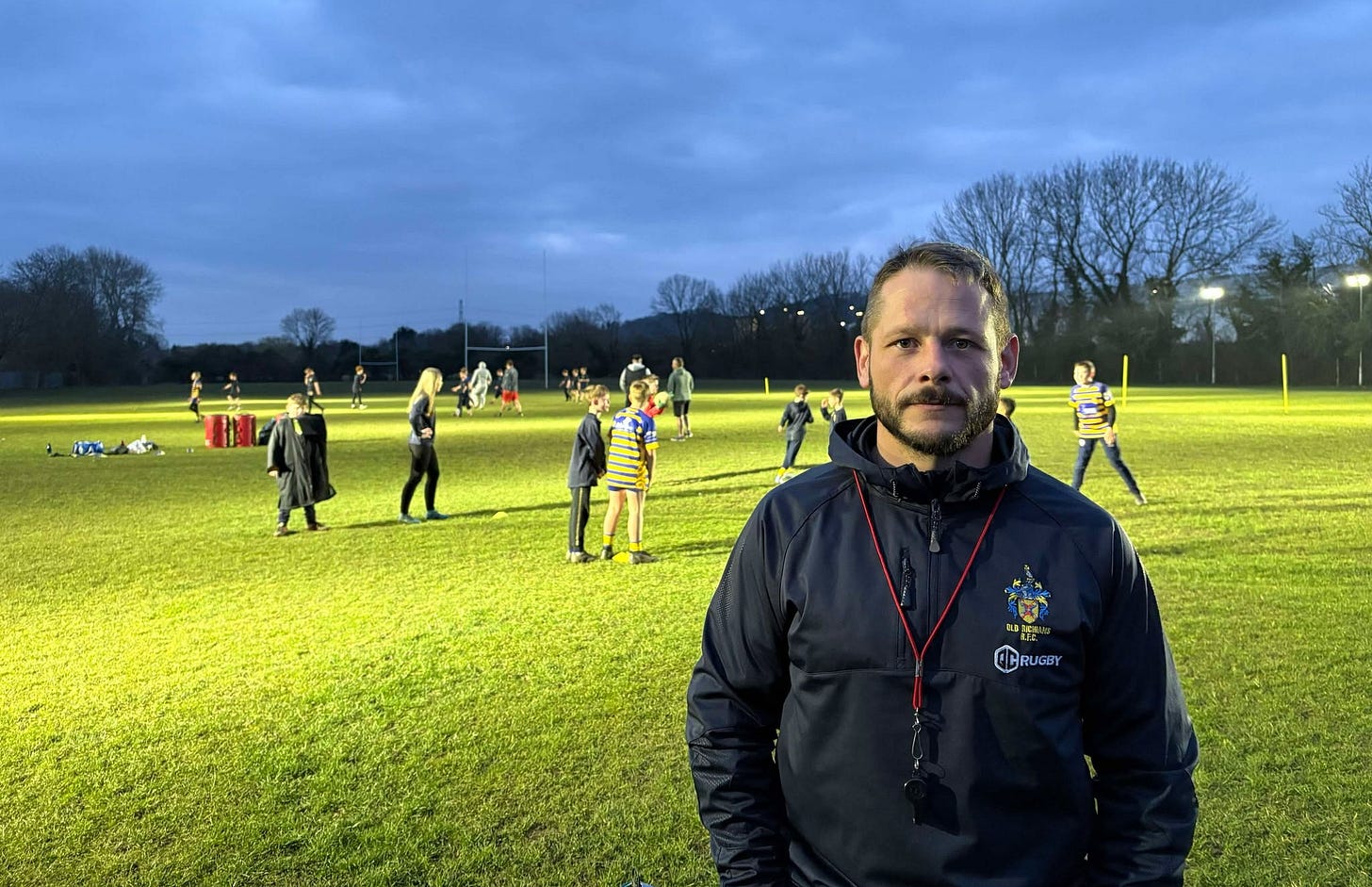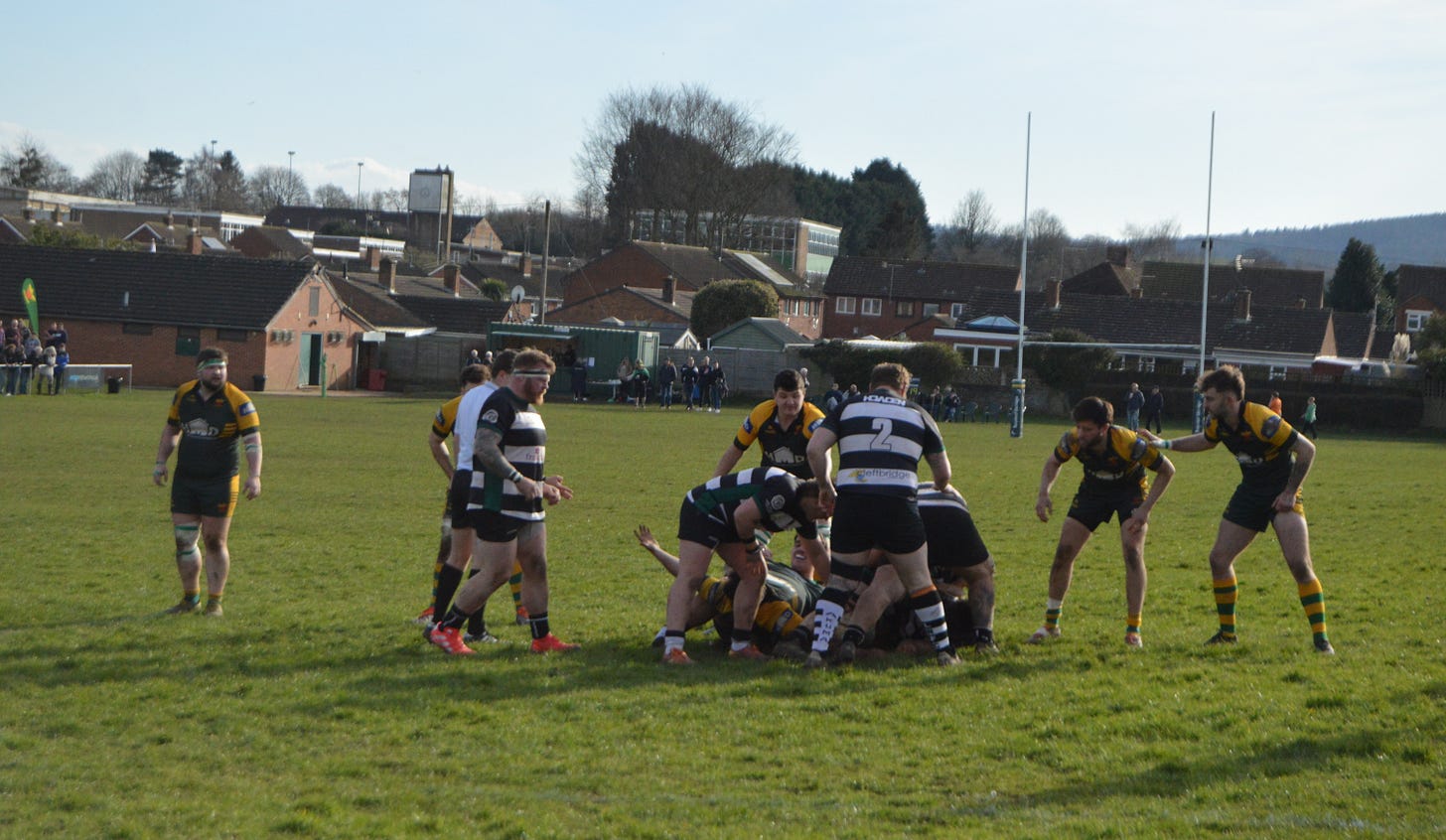"Clubs are really struggling" - Why Gloucestershire grassroots rugby is crying out for help
The community game is on its knees and feels let down by those in charge at the RFU
Gloucester - a proud rugby city with a club founded in 1873. The Cherry and Whites, the roar of the Shed on a Kingsholm matchday, rugby gives Gloucester a proud identity.
As the 2025 Six Nations draws to a close, a tournament which keeps the domestic game going, good news on the championship remaining on free-to-air TV until 2029 is welcome but headlines about the game in recent years have not been positive at all.
The professional game in England has struggled post-pandemic. Top-flight clubs London Irish, Wasps and just up the road at Worcester Warriors - they’ve all gone bust. On a local level, the former MP for Gloucester, Richard Graham, even called on then Prime Minister Rishi Sunak to help find a solution to the ‘crippling’ repayments of loans handed out to Premiership rugby clubs like Gloucester Rugby to help keep them afloat.
At the time, Gloucester Rugby’s financial position was declared not to be an immediate concern, but you can understand the apprehension with fragile rugby clubs playing on unstable financial grounds.
If all this sounds bad enough, spare a thought for those at rugby’s grassroots clubs who are trying their best to keep the game alive and kicking. Of course this piece is specific to Gloucestershire, but across the country there are an army of dedicated individuals making sure their community club hangs on for dear life.
“It makes me sad”
Come rain or shine, Jason Mitchell coaches players from ages five to 18 at Old Richians RFC based in Longlevens.
One of a dozen clubs in Gloucester, Jason explains that there are two or three clubs in the city that cannot even field a side. Rugby clubs unable to field a side each week is a story well documented.
What Jason is concerned about is the decrease in players coming to play. It’s hard to pin down specific reasons why it is happening, but Jason felt the need to speak after getting in touch.
The worry on lack of players coming in not just at junior level but also senior level to play a game of rugby at Old Richians, “has been growing over many years, Jason said. If the decrease of grassroots players continues it could be the end of the game. Seeing clubs not just us but others, it makes me sad. Rugby does not get the coverage and exposure as football gets but I think we forget that rugby remains a great game to watch.”

In Gloucestershire specifically Jason believes that it is absolutely the case that we have a lot of clubs, too many perhaps, but what is the solution?
Coaching two age groups at Old Richians, Jason argues that “we cannot allow clubs like ours and others left wanting for much longer. We rarely put out a second team, Gloucester Old Boys have struggled so Old Richians have even had to combine with other clubs.”
In his own personal view, “a cap on the amount of players you take into an age group and there has to be a way to make sure rugby is more appealing,” are just some potential answers to solve the problem.
“We're always desperately short of playing space”
The difficulty lies in the fact that there will not be any easy solution to make sure the wider rugby family remains intact.
Elsewhere in the county, Paul Dando is President and former player at Newent RFC. As Paul discusses, during his playing days, the 1970s would have seen Newent field four sides - but now a lack of Props is one reason why the amount of sides have dropped.
No front row is not a recipe for success and the struggles of grassroots rugby is “universal, Paul said. Most clubs are going through a really bad time while there is still a lot of youth rugby. It is hard to determine why clubs are losing players but I wonder if it’s to do with once players are finished with under-16s or 18s they feel it’s not for them.”
Tim Marshfield, Vice-Chair of Stroud RFC says the club has every age group from under-6s, a senior team and now a walking rugby side.
“From a senior perspective we’ve recovered our numbers from the lows after COVID, Tim said. If everyone is fit and well we can field two teams but we have lent players to other clubs like Cainscross. Some of our players will happily play for other clubs but obviously numbers have plummeted.”
Stroud RFC are perhaps one of the lucky ones but as Tim points out, the loss of players depends on the type of person you are. “The obvious issue is injuries, the risk of concussion, MND and cultures have changed and for us as we do lose a few players who go to university and don’t tend to come back to Stroud.”
On capping the amount of youth players at a club, Tim acknowledges that the “practicalities are understandable but you can’t really say to mates that they can’t play with each other. The biggest problem for us at Stroud is we’re desperately short of playing space. Improved facilities can help because cancelling games due to weather and no alternative pitch space does put the kids off.”
Frustration with the governing body
The governance of English rugby has come under intense scrutiny recently. A cross-party group of MPs have told their concerns on the financial mismanagement, grassroots neglect and lack of engagement with lower-league clubs by the Rugby Football Union (RFU).
Big pay to executives along with the demise of historic clubs also does not make for happy reading. Chief executive Bill Sweeney’s proposed reforms will face a test with an RFU membership vote later this March, a chance for grassroots clubs to decide whether he should actually step down.
Frustration with the RFU is apparent when speaking to Jason, Paul and Tim, a consensus that the noise around the governing body is not helping at all.
Tim said: “The RFU talk about expanding the game where we should be opening up to everyone, but I've got one and a half rugby pitches. I'd love to offer more but it's incredibly hard. I think the RFU needs to realise genuine issues. They shouldn't necessarily fund it themselves but they should be a funding mechanism. The RFU are helping with words but not actions.”
“The RFU do a lot regarding player safety and the tackle height law has helped, Jason said. “What I’d like to see the RFU do is work with clubs at grassroots level more to help try to pick the numbers up.”
Paul added: "It's important for the RFU to have a strategy on progression for players. Eventually it will hit the top of rugby and top quality players just won't be around."
As reported by BBC Sport, an RFU spokesperson said the organisation's own review, which is taking advice from outside the sport, will deliver its recommendations soon.
"We agree that governance reform is a critical part of creating a better relationship between ourselves, our clubs and all of our stakeholders, with much stronger engagement and collaboration as to how the game is run," they said.
"That's why the RFU Council has already established a Governance and Representation Reform Review, with a view to introducing new structures with far greater flexibility and devolved decision making than is possible today. The review is ongoing and should report in the coming months."
The Parliamentary Under-Secretary of State for Culture, Media and Sport, Stephanie Peacock, acknowledged the concerns raised but stopped short of promising direct government intervention.
“The RFU is independent of Government and is responsible for the governance of the sport at all levels, including how it distributes funding,” she said. However, she did highlight that the RFU had committed £120 million over four years to grassroots rugby and was exploring loans for critical club infrastructure.



